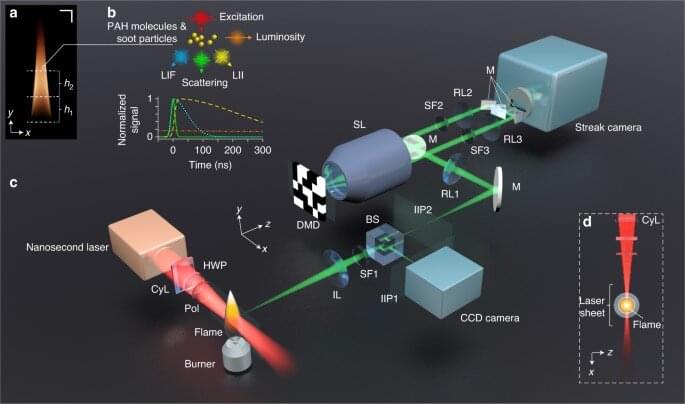The soot produced by unburnt hydrocarbon flames is the second largest contributor to global warming, while also harming human health. Researchers have developed state-of-the-art, high-speed imaging techniques to study turbulent flames, yet they are limited to an imaging rate of million-frames-per-second. Physicists are therefore keen to obtain a complete picture of flame-laser interactions via single-pulse imaging.
In a new report published in Light: Science & Applications, Yogeshwar Nath Mishra and a research team at the Caltech Optical Imaging Laboratory, the NASA Jet propulsion lab, department of physics, and the Institute of Engineering Thermodynamics in the U.S., and Germany, used single-shot laser-sheet comprised ultrafast photography per billion frames per second, for the first time, to observe the dynamics of laser-flames.
The team noted laser-induced incandescence, elastic light scattering and the fluorescence of soot precursors such as polycyclic aromatic hydrocarbons in real-time, with a single nanosecond laser pulse. The research outcomes provide strong experimental evidence to support soot inception and growth mechanisms in flames. Mishra and the team combined a variety of techniques to probe the short-lived species in turbulent environments to unravel the mysteries of hot plasma, nuclear fusion and sonoluminescence.
